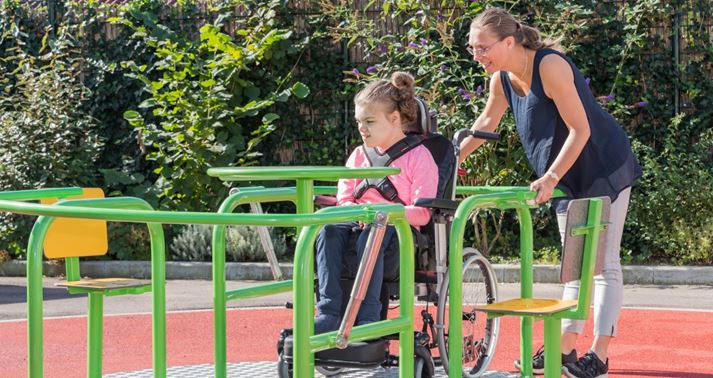Respite Care Explained: Support Options for Carers and People with Disability
18 July, 2022

Caring for a loved one with disability can be deeply rewarding, but it can also be physically and emotionally demanding. That is where respite care comes in. Respite care provides short-term relief for carers while ensuring the person receiving care continues to be supported in a safe, respectful, and nurturing environment.
Whether you are considering your first respite service or reassessing your current arrangements, this guide will help you understand everything you need to know about respite care, including what it is, why it matters, the different options available, how it is funded, and how to access the right supports for your family.
What Is Respite Care?
Respite care is a short-term care arrangement that allows primary carers to take a break from their day-to-day responsibilities. It provides safe and structured support for people with disability, whether in their own home, in a day centre, or in dedicated accommodation, while the carer attends to personal matters, rests, or takes time for themselves.
Respite can be:
- Planned, which includes breaks arranged in advance and used on a regular basis.
- Emergency, which offers urgent support when a carer is unexpectedly unable to provide care.
Why Is Respite Care Important?
Respite care is essential for maintaining the wellbeing of both carers and the people they support. It can:
- Help prevent physical and emotional burnout by allowing carers time to rest and recharge.
- Improve family and household relationships by reducing daily stress.
- Promote independence for people with disability by encouraging new routines and experiences.
- Increase social engagement through community-based programs.
- Ensure consistent and uninterrupted care, even when unforeseen circumstances arise.
Types of Respite Care
Respite care services are generally divided into planned respite and emergency respite. Choosing the right type depends on your situation, preferences, and support needs. Planned respite allows carers to take scheduled breaks, knowing their loved one is receiving high-quality support in an environment suited to their goals, interests, and routines. There are four common types of planned respite:
In-Home Respite
In-home respite provides care within the person’s home. A support worker visits to assist with daily activities while the carer steps away for a short period or for the day.
Benefits:
- Allows the person with disability to remain in familiar surroundings.
- Maintains regular routines with minimal disruption.
- Flexible timing that suits the family's schedule and needs.
Centre-Based Day Respite
This model is delivered at a community hub or day centre, offering structured activities such as games, arts and crafts, or skill-building programs during daytime hours.
Benefits:
- Provides opportunities for social engagement and learning.
- Offers a consistent and welcoming group setting.
- Often available on weekdays, weekends, and during school holidays.
Overnight or Weekend Respite
Overnight respite or weekend stays are usually offered through Short-Term Accommodation services. They provide 24-hour care in a safe and supported environment, away from the person’s usual home.
Benefits:
- Gives carers extended time to rest, travel, or manage other responsibilities.
- Encourages the person with disability to develop independent living skills.
- Ideal for building confidence in different environments.
Community Access Respite
This type of respite takes place in the wider community and focuses on supporting the person to participate in activities and outings that build confidence and inclusion.
Benefits:
- Promotes independence by encouraging participation in everyday community life.
- Can include activities such as going to events, shopping, or attending classes.
- Strengthens social skills and community involvement.
Emergency Respite
Emergency respite is available when a carer cannot provide support due to sudden illness, crisis, or unforeseen circumstances. It ensures that the person with disability receives immediate care while the carer attends to urgent matters.
This service can be accessed through the Carer Gateway and certain providers who offer rapid-response support. It is especially important during unexpected situations such as hospitalisation, family emergencies, or accidents.
How Is Respite Care Funded?
There are several funding options available to help cover the cost of respite care in Australia, depending on your eligibility.
National Disability Insurance Scheme (NDIS)
NDIS participants may have funding allocated under Short-Term Accommodation, Core Supports, or Support Coordination to assist with respite services. This funding can be used flexibly depending on individual goals and plans.
Carer Gateway
Unpaid carers can access free services through the Carer Gateway, which includes both emergency and planned respite care, along with other supports such as coaching and counselling.
Other Government and Insurance Schemes
Respite care may also be available under other programs and funding bodies, including the National Injury Insurance Scheme QLD (NIISQ), ReturnToWork SA (RTWSA), Lifetime Support Authority (LSA), Department of Human Services (DHS), Motor Accidents Insurance Board (MAIB), Carers SA, and through private funding or trustee-managed arrangements.
Why Choose McArthur Community Care?
At McArthur Community Care, we understand that quality respite care is essential for both the carer and the person receiving support. We specialise in providing individualised and flexible respite solutions tailored to your unique circumstances.
We are a registered service provider supporting people with disability across South Australia, Victoria, New South Wales, Queensland, and Western Australia. Our services are available to individuals funded under a wide range of programs including the National Disability Insurance Scheme (NDIS), National Injury Insurance Scheme QLD (NIISQ), ReturnToWork SA (RTWSA), Lifetime Support Authority (LSA), Department of Human Services (DHS), Motor Accidents Insurance Board (MAIB), Carer Gateway, Carers SA, and to private clients and trustees.
Need a Break? We Are Here to Help
McArthur Community Care offers respite care you can trust. Our experienced team works alongside families to design personalised support options that bring peace of mind, flexibility, and continuity of care.
Share this Article
Related Articles
Changing NDIS Providers: How to Navigate Service Closures with Confidence
If your NDIS provider is closing services, your support does not have to stop. Discover your rights, how to switch providers with confidence, and how McArthur Community Care can ensure a smooth transition with reliable, long term support.
Learn MoreCreating a Compassionate Future for Disability Support
Empowering individuals with disability starts with equipping support workers with the right skills. McArthur Community Care advocates for quality training, respect, and inclusion to create a compassionate future for disability support.
Learn MoreBuilding Relationships: A Cornerstone of Exceptional Disability Care
Alice’s story highlights the power of person-centred disability care. Shared by Stewart Pope of McArthur Health Support, it underscores the need for tailored support over generic models, advocating for policies that prioritise relationships, safety, and dignity.
Learn MoreEssential Credentials and Qualifications You Need to Work as a Disability Support Worker
Disability support workers play a vital role in delivering safe, person-centred care under the NDIS. This guide outlines the essential credentials, checks, and qualifications required to work in the sector or engage support workers with confidence.
Learn More



